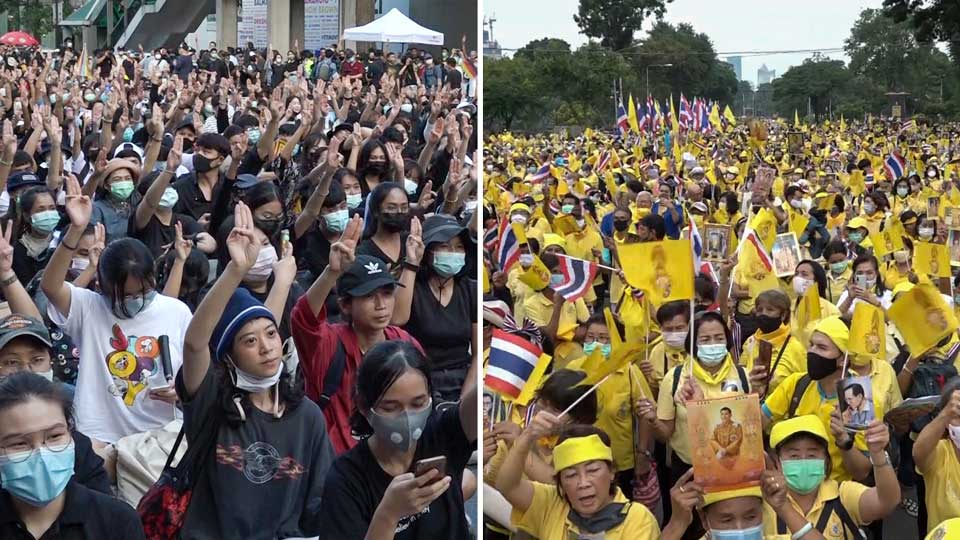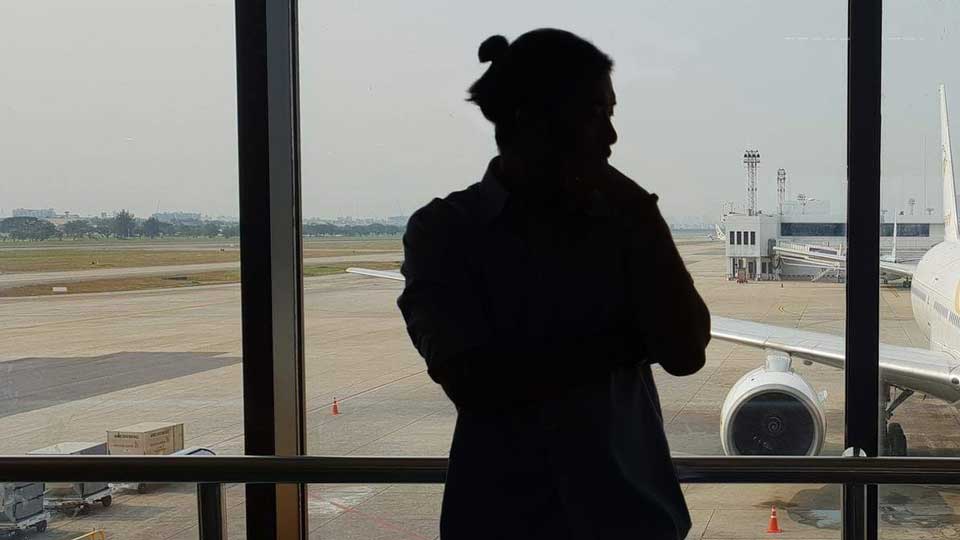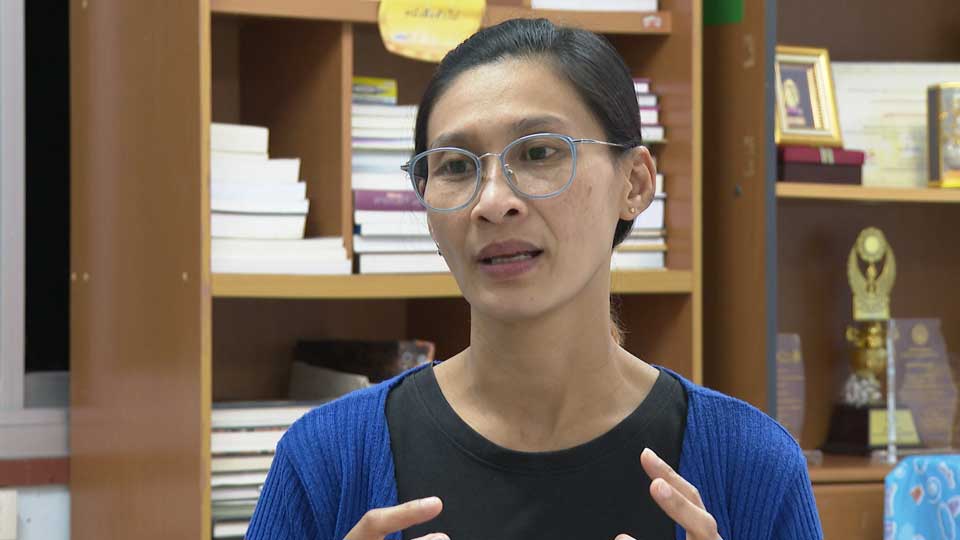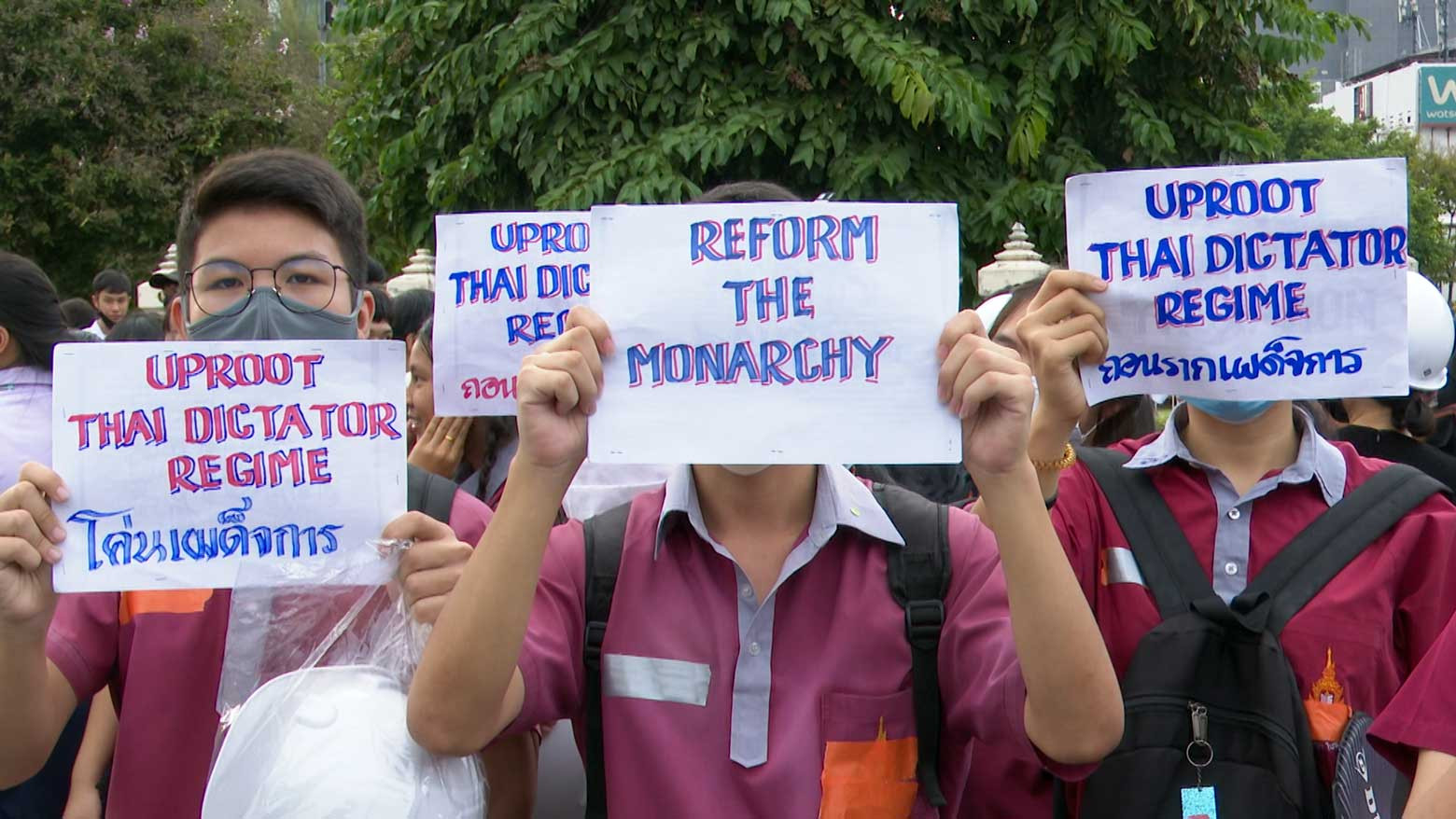His story is not unique. Families across Thailand are being torn apart by the deepening political divide.
Since late July, tens of thousands of young protestors dressed in black have taken to the streets, demanding reforms to the constitution and monarchy. Royalists, who are generally older, are pushing back with demonstrations of their own. They wear yellow to show their support for the nation's head of state, King Maha Vajiralongkorn.

The generational political divide is reshaping societal relationships with young people challenging the status quo.
"Unlike their predecessors, they raise questions about the monarchy and the military-linked prime minister," says Dr. Nipat, a developmental psychology professor at Chulalongkorn University. "On the other hand, the older generation looks up to the King as a demi-God that cannot be spoken of or mocked, because that would mean bringing him down to the same level as any other Thai citizen."
Family estrangements
Misu comes from a close-knit family in the southern region of Prachuap Khiri Khan. Disagreement over Thailand's worst political crisis in six years erupted with a bitter argument at the family home, during which Misu's father hurled chairs and glass bottles. The pair argued for weeks as Misu was urged to step back from the protest movement, and warned he could face criminal prosecution for speaking ill of the monarchy.
Misu says his father's last words to him were: "If you get arrested for joining these protests, I won't be there to help you."
Misu, who asked to be referred to by his nickname, believes in his own political rights and thoughts. As is the case in many other families, Misu's father sees his son's rejection of Thailand's institutions and political structure as an act of rebellion against national unity.
Misu recently sent his father a text message, hoping for a reconciliation before the New Year. "Let me come home. I don't want this argument lasting until next year," he wrote. His father replied, saying he wouldn't speak to his son as long as he is still involved in the protests.

Family violence erupts
People in their early teens, some as young as 14, have joined the protests. One female high schooler, who asked not to be named, says she has been physically abused and left with bruises and scars from arguments at home.
"My parents, especially my father, did not want me to join protests," she says. "He would hit me whenever he found out that I went to a protest." She was told repeatedly that it was useless and foolish to challenge the monarchy and the government's elected officials. Despite her father's attempts to stop her, she is determined to join every gathering.
"I want to exercise my rights as a citizen," she tells her parents. But for them, that's not enough of a reason.
Counseling services step in
Deteriorating relationships have led hundreds of people in Bangkok to seek help. Between August and early November in 2020, more than 400 calls were registered by six advice and counseling service NGOs. One of the groups, the Thai Foundation Network, is running seminars targeting parents and youths who are experiencing family conflict over the current political narrative.
Counselor Thanichar Limpanich, the head of Thai Foundation Network, teaches communication intervention techniques to help families reestablish healthy relationships. "We try to introduce positive communicative forms of reinforcement between the two generations," she says. "Ultimately, we want them to understand that family relationships are worth more than conflicts over political opinions. Political matters will sooner or later die off, but your family will stay with you forever."

Both generations in Thailand feel strongly about the way forward for the nation. And that gaping political divide is reflected in many homes, driving sons and daughters away from their parents.

